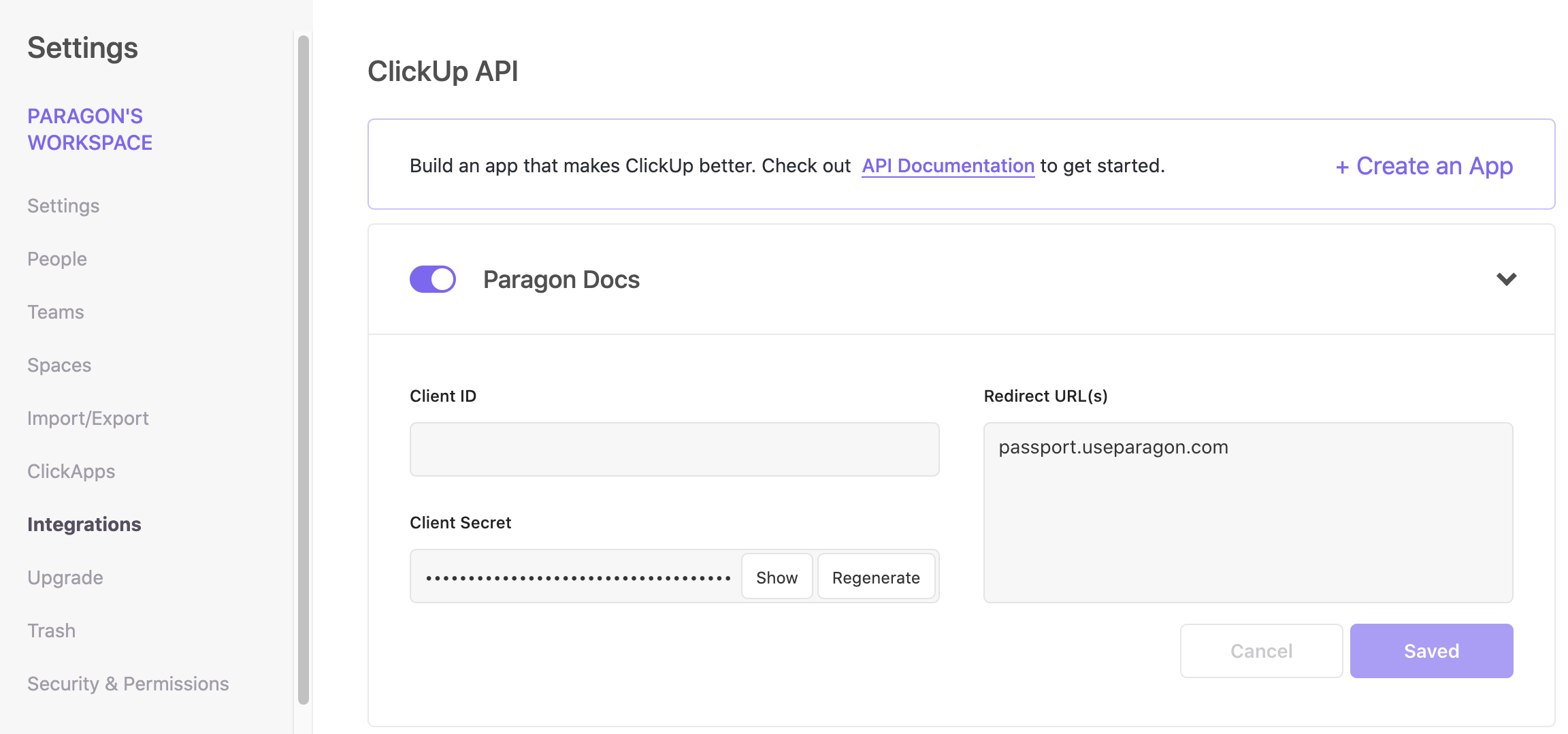Setup Guide
Note: You’ll need to create a new ClickUp app if you don’t already have one.
- Client ID
- Client Secret
Add the Redirect URL to your ClickUp app
Paragon provides a redirect URL to send information to your ClickUp app. To add the redirect URL to your ClickUp app:- Copy the link under “Redirect URL” in your integration settings in Paragon. The Redirect URL is:
- In your ClickUp account, click your Workspace avatar in the lower-left corner
- Select Integrations.
- Click ClickUp API.
- Select your application.
- Under Redirect URL(s), paste-in Paragon Connect’s redirect URL found in Step 1. Click the Save button to save your changes.

Add your ClickUp app to Paragon
- Select ClickUp from the Integrations Catalog.
- Under Integrations > Connected Integrations > ClickUp > App Configuration > Configure, fill out your credentials from the end of Step 1 in their respective sections:
-
Client ID:
- Log in to your ClickUp dashboard.
- Select “Settings” from the sidebar.
- Under Integrations > ClickUp API, select your application.
- Copy the Client ID from “Client ID”.
-
Client Secret:
- Log in to your ClickUp dashboard.
- Select “Settings” from the sidebar.
- Under Integrations > ClickUp API, select your application.
- Copy the Client Secret from “Client Secret”.
Note: Leaving the Client ID and Client Secret blank will use Paragon development keys.
.png?fit=max&auto=format&n=JtnB3_DeUOyB_qxZ&q=85&s=d991b3f72db949f279eff61246e6a029)
Connecting to ClickUp
Once your users have connected their ClickUp account, you can use the Paragon SDK to access the ClickUp API on behalf of connected users. See the ClickUp REST API documentation for their full API reference. Any ClickUp API endpoints can be accessed with the Paragon SDK as shown in this example.Building ClickUp workflows
Once your ClickUp account is connected, you can add steps to perform the following actions:- Create Task
- Update Task
- Search Tasks
- Get Tasks in List
- Delete Task
{{ to invoke the variable menu.
Using Webhook Triggers
Webhook triggers can be used to run workflows based on events in your users’ ClickUp account. For example, you might want to trigger a workflow whenever new tasks are created in ClickUp to sync your users’ ClickUp tasks to your application in real-time. You can find the full list of Webhook Triggers for ClickUp below:- New Folder Created
- Folder Updated
- New List Created
- List Updated
- New Space Created
- Space Updated
- New Task Created
- Task Updated
- New Comment on Task